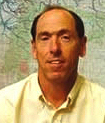Dr. Universe: How did people in ancient times filter water from rain?
adrianaEvery day people around the world get their water in different ways. Some get water from a well, others turn on a tap, go to the store, and some walk many miles to a river. But no matter how we get our drinking water, it almost always starts with rain.

Rainwater is really clean, said my friend Julie Padowski. She’s a scientist at the State of Washington Water Research Center at Washington State University and an affiliated faculty member in the School of the Environment.
In ancient times, some people harvested rain in big containers, but many more people used water that had collected naturally in streams, rivers, and in the ground.
They could find groundwater rushing by in rivers, or bubbling up from underground through a spring. They could also dig deep into the earth to find water.



